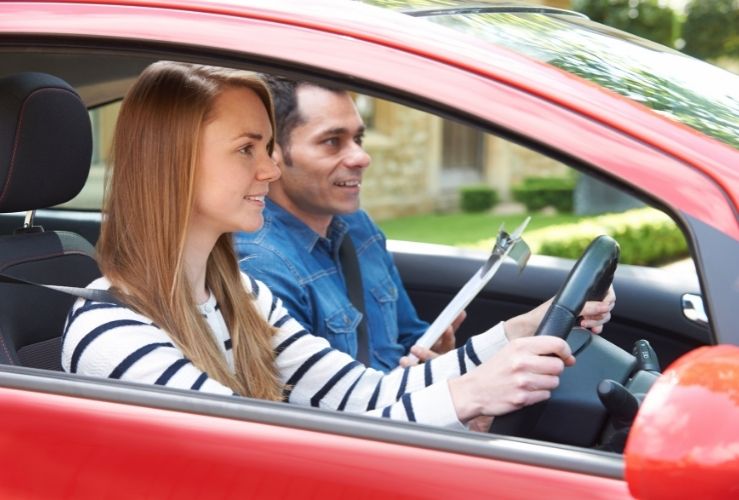Getting behind the wheel of your first car is not cheap. Before you even think about buying and insuring your first car, you'll need to learn to drive - and pass your test.
According to the DVSA, it takes around 47 one-hour driving lessons to learn to drive, costing about £1,300 in total. In addition, it requires another 22 hours of private practise, on average, to pass.
If you use your instructor's car for this then you'll need to pay for this too, potentially bringing the final cost to £2,000.
Plus, there's the cot of your provisional license to take into account.
It’s little wonder, then, that many learner drivers ask a friend or relative to teach them instead of an instructor.

Can anyone teach me how to drive?
No. The friend or relative must be 21+, and have had a full UK licence for three years or more.

Approved Driving Instructor (ADI)
A government Approved Driving Instructor (ADI) must have passed the theory test, a driving test, and a teaching test. The latter requires them to have completed at least 100 hours of training, and have spent a long time teaching learners.
Potential Driving Instructor (PDI)
A Potential Driving Instructor (PDI) can also teach you how to drive. These individuals are learning to become an Approved Driving Instructor.
They must have passed the first two tests and finished at least 40 hours of training.
They will have a Trainee Teaching Licence.
But which is right for you - friend/relative, or qualified instructor?
Here we look at the pros and cons of each.
Learning to drive with a friend or relative as your instructor
Pros
- You won't need to pay for lessons
- You may have more flexibility about when you are taught
- You'll know the ‘teacher’ personally, which could be more relaxing
- You can learn in your own vehicle
- A great addition to driving lessons
Cons
- You'll need to buy learner insurance - which could be around £70 per month.
- Your relative or friend won’t have the same teaching experience as an instructor
- Regular cars do not have dual controls, so you may feel less safe
- Statistically you’re less likely to pass on your first attempt
- Possibility of picking up bad driving habits
- The potential for arguments

Learning to drive with an Approved Driving Instructor
Pros
- They are qualified to teach you how to be a safe driver and to pass your test
- They have a lot of teaching experience
- In an instructor's car there will be brake and clutch pedals so they instructor can take over the controls if needed
- They are fully insured
- You will learn in a modern car
- They can offer guidance on the Theory and Hazard Perception Tests
- Instructors will be up-to-date with the latest Highway Code and driving law changes
- They can advise on suitable practise activities between lessons
Cons
- The cost - likely to be £1,300, or potentially much more if you take longer to learn
Driving lessons and communication styles
As an experienced professional, an Approved Driving Instructor is likely to know the best ways to teach you how to drive, and may be more patient than a friend or family member.
A carefully chosen word at the right time could make all the difference.
The formal role of the instructor may create a better basis for learning.
However, a patient friend or family member with lots of driving experience may also be an effective teacher.

Online driving workshops
If you choose to be taught by a friend or family member, it might be beneficial to take up an online driving workshop to ensure you are following the best procedure.
Intensive driving courses
If you don’t want to spend months (or years) learning to drive, you might opt for an intensive driving course, aka 'crash driving course'.
You must have passed the Theory Test and you can complete it in two weeks, with 4-5 hours per day on the road.
However, a crash course may cost more than regular lessons.
This may be a good option if you need a licence for a job.
Practical driving test advice
When it comes to taking your driving test, we have compiled some handy tips to passing your UK practical driving test, from ‘show me, tell me’ questions, through to the practical driving exam.
Advanced driving courses
Once you have passed you driving test you might want to consider enrolling onto an advance driving course to further improve your driving skills. Find out more about advanced driving courses here.




